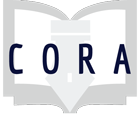This lesson was developed for HIS484 (Topics in the History of Gender and
Sexuality/Pride in the time of HIV/AIDS) in the Spring of 2018. The students’ final assignment
culminated in a multimedia or digital research project on a topic of their choosing and heavily
relied on primary source and visual materials. This lesson focuses on how students, as content
curators and analysts, can engage in deeper analysis and contextualization of the sources they
present through their projects. Students collectively analyzed one example from a particular
Assignments
As part of the research process, students need to learn how to organize and synthesize their sources. This short lecture, followed by a matrix outline given to every student, gives students the opportunity to focus their research question even more and to add their own ideas to the conversation of research within their chosen topic.
This lesson, created for English 2010, or Argumentative Writing, teaches students how to use library databases and keywords in order to focus their research topics. Most students come prepared with a general or broad topic in mind, but they need to narrow their focus in order to get more relevant search results. Here they simultaneously learn to search in and use the library databases and to focus their research topics.
This activity is designed to support teaching at the intersections of scholarly communication and information literacy. The choose-your-own scenario activity, designed in LibWizard, can be used in a flipped classroom setting or in a traditional classroom. The choose-your-own scenario activity is inspired by and adapts questions from: Hare, S. & Evanson, C. (2018). Information privilege outreach for undergraduate students. College and Research Libraries.
This lesson was co-developed by Daniel Ransom and Nicole Branch. This is an intensive APA workshop that could be broken into parts. It covers both APA citation and formatting, with a protest theme. The workshop was conducted as a stand-alone, outside of class workshop at Holy Names University in 2014 and 2015. Though Occupy is now dated, the theme of protest could be adapted to something more current. We didn't think it would be possible to make APA citation engaging, but this lesson did just that. It was especially popular with nursing and education students.
This lesson was developed for a Photography course on the theory and psychology of photography (non-majors and majors both take this course). This lesson is typically presented at the beginning of a course section on the aesthetics of photography. It was meant to challenge their assumptions about art, information (online) as a commodity, and copyright practices of artists. Students may be asked to look up Richard Prince before class or during, as the lesson suggests.
This activity introduces students to a variety of databases in their discipline by asking them to quickly review and prepare an “elevator speech” on the database’s best features and content. Students then do three rounds of “speed dating” to share with other students what they’ve discovered.
This activity is intended to introduce students to business resources by following the Porter's 5 Forces. Each Force is its own activity with suggested discussion questions, examples and recommended research approach.
During this activity, students work in small groups to explore assigned databases and then share back what they learn in a Google Doc projected at the front of the classroom.
A general sample of how to set up the information literacy workshop in an escape room model.
